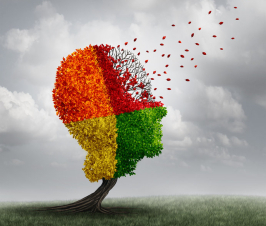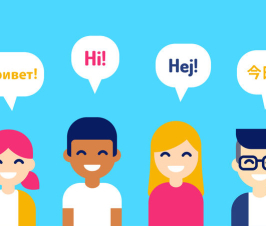Maybe there’s some truth in the adage, “you can’t teach an old dog new tricks.” If those new tricks necessitate an awareness of mistakes made during the learning process, perhaps it is harder for older people to learn new things. At least this may be an implication of a recent study that shows that older people may be less able to recognize errors that they’ve made.1
Study conducted at the University of Iowa
The study was conducted at the University of Iowa. A computerized testing scenario was used to assess readily, and accurately both young adults and older adults realize that they have made a mistake. Interestingly, older adults and younger adults performed about the same on the actual test, which involved looking away from an object on the screen. However, younger adults were much more likely to acknowledge when they actually had failed to look away from the object. Older adults, on the other hand were actually more likely to refuse to admit that they had made a mistake; adamant that they had performed better than they actually did.
Research offers glimpse into how older adults perceive their own abilities
The tasks were performed by the older adults just as well, though more slowly. It was seen as interesting that there was an impaired ability to recognize errors. The research offers a glimpse into how older adults may perceive their own abilities, decisions and performance. This has implications in how older individuals judge their own ability to do every day tasks such as drive, or how regularly they take medications.
Researchers point out
The researchers point out that “realizing fewer errors can have more severe consequences, because you can’t remedy an error that you don’t realize you’ve committed.”
Study assessed 38 younger adults and 39 older adults
The study assessed 38 younger adults (mean age of 22 years) and 39 older adults (mean age of 68 years). The tests involved looking away from a circle appearing within a box on the side of a screen. The test is simple, yet it is human nature to want to focus on something novel in the field of vision. About 20 percent of the time, both groups were found to give in to the urge to glance at the circle before shifting their vision. After each failed instance, the participant was asked whether they had made an error, and to rate how sure (from ‘unsure” to “very sure”) of their error or lack thereof.
Results
Younger individuals were accurate in assessing their errors 75 percent of the time. Older individuals were only correct 63 percent of the time. So, about ⅓ of the time, the older participants didn’t realize they made a mistake. In addition, the younger participants were much less confident in instances that they did not recognize their error, or they questioned their performance to a greater extent, in instances where they had indeed made errors.
Pupil dilation as a confirmatory measurement was also measured
The researchers also measured pupil dilation as a confirmatory measurement of the participants’ authentic assessment of their performance. Pupils are seen to dilate when something unexpected happens – fright, surprise, etc. Pupils also dilate when people think they have made a mistake. The pupil measurements showed dilation when younger adults thought they erred, and less so when they did not recognize errors. In older adults the pupil dilation was completely absent in instances where they did not recognize their errors, and reduced in comparison to the younger adults when they did assess errors accurately.
Source:
- Wessel JR, Dolan KA, Hollingworth A. A blunted phasic autonomic response to errors indexes age-related deficits in error awareness. Neurobiol Aging. 2018;71:13-20.
Image Copyright: <a href=’https://www.123rf.com/profile_racorn’>racorn / 123RF Stock Photo</a>
 Razi Berry is the founder and publisher of the journal, Naturopathic Doctor News & Review, that has been in print since 2005 and the premier consumer-faced website of naturopathic medicine, NaturalPath. She is the host of The Natural Cancer Prevention Summit and The Heart Revolution-Heal, Empower and Follow Your Heart, and the popular 10 week Sugar Free Summer program. From a near death experience as a young girl that healed her failing heart, to later overcoming infertility and Chronic Fatigue Syndrome and Fibromyalgia through naturopathic medicine, Razi has lived the mind/body healing paradigm. Her projects uniquely capture the tradition and philosophy of naturopathy: The healing power of nature, the vital life force in every living thing and the undeniable role that science and mind/body medicine have in creating health and overcoming dis-ease. Follow Razi on Facebook at Razi Berry and join us at Love is Medicine to explore the convergence of love and health.
Razi Berry is the founder and publisher of the journal, Naturopathic Doctor News & Review, that has been in print since 2005 and the premier consumer-faced website of naturopathic medicine, NaturalPath. She is the host of The Natural Cancer Prevention Summit and The Heart Revolution-Heal, Empower and Follow Your Heart, and the popular 10 week Sugar Free Summer program. From a near death experience as a young girl that healed her failing heart, to later overcoming infertility and Chronic Fatigue Syndrome and Fibromyalgia through naturopathic medicine, Razi has lived the mind/body healing paradigm. Her projects uniquely capture the tradition and philosophy of naturopathy: The healing power of nature, the vital life force in every living thing and the undeniable role that science and mind/body medicine have in creating health and overcoming dis-ease. Follow Razi on Facebook at Razi Berry and join us at Love is Medicine to explore the convergence of love and health.

















